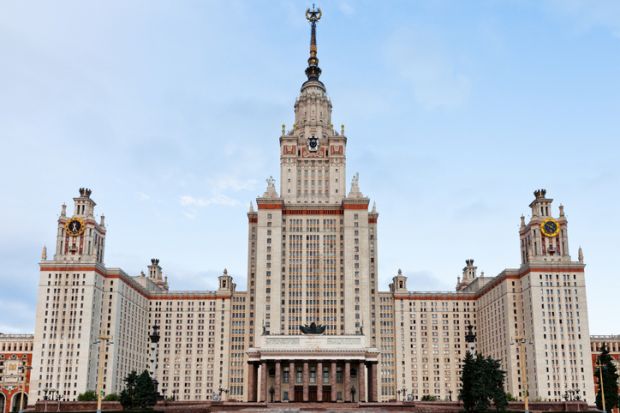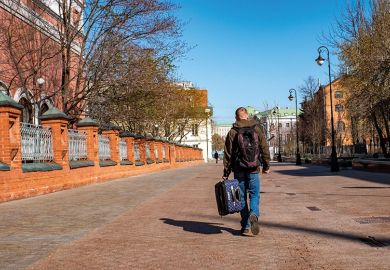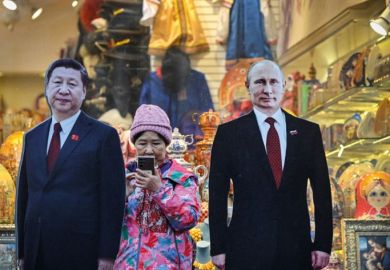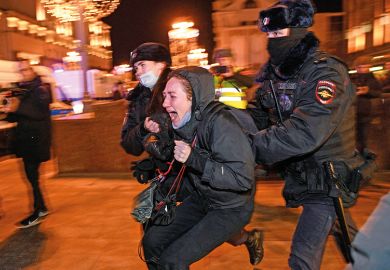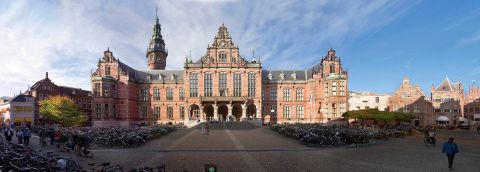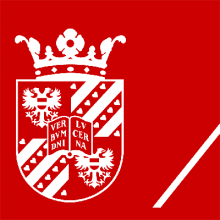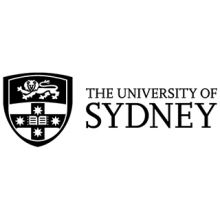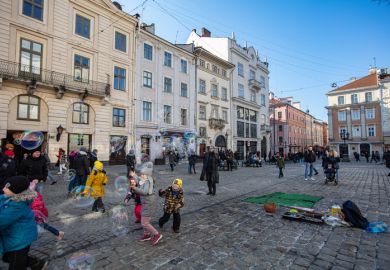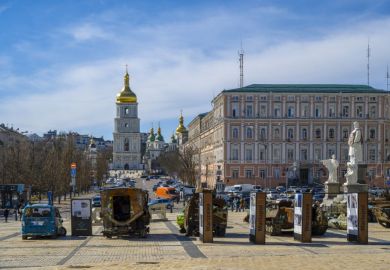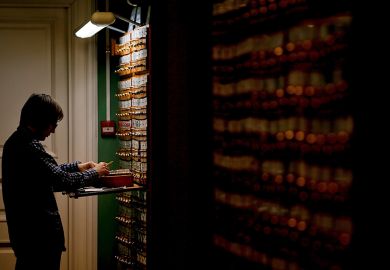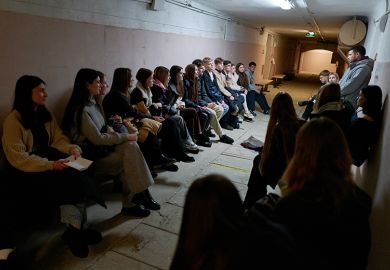In the wake of Moscow’s 2022 invasion of Ukraine, Russian academics prioritised the preservation of teaching “at all costs”, a new study has found, while their responses to new restrictions included adjusting their research focus away from “problematic” topics, creating “safe spaces” for researchers and leaving their university altogether.
Lidia Yatluk, of the University of Groningen, and Iuliia Khukalenko, of the University of Sydney, conducted interviews with 40 Russian faculty members, publishing their findings in the journal Higher Education.
“People participated in the audio call anonymously, renaming themselves and not revealing the names of some of their colleagues for security reasons,” Yatluk told Times Higher Education. “It is still possible to collect qualitative data in Russia, but it requires a high degree of caution and sensitivity.”
After Russia invaded Ukraine, Russian universities “received government-issued guidelines on the organisation of ideological extracurricular activities”, Yatluk and Khukalenko write. “Since the war began, bans on LGBTQ+ ‘propaganda’, discrediting the army and spreading false information, and new espionage laws have imposed vague, selectively applied restrictions. These laws increasingly limit teaching, research, and public discourse.”
Study respondents described teaching as a “core value”, with all of the academics interviewed reporting “some form of willingness to compromise, withhold information from supervisors, colleagues, and students, create appearances, or sacrifice research to preserve teaching”.
Some interviewees responded to new restrictions via “normalisation”, summarised by the study authors as: “Researchers do what they are asked to do, they follow old and new rules, and find their own explanations for what is happening.”
Others took an “avoidance” approach, ignoring or delaying their responses to instructions such as the teaching of patriotic material without directly confronting university administration. “A researcher’s work is not activism but a profession with skills, including academic communication. Negotiation is part of mentoring,” one respondent, using the pseudonym Zakhar, told interviewers.
Several academics, particularly those working in the humanities, found it necessary to change their current research focus, whether due to “internal existential anxieties about the topic, fear for oneself and one’s subordinates, or a sense of temporary irrelevance of the past focus and the greater importance of another”.
For example, a philosopher working on two projects – the distinction between Russian and Ukrainian philosophy, and the study of memory – chose to focus entirely on the latter, concluding that the former “could not be resolved with sufficient impartiality” in the context of the war.
Among the academics who left their university, the country or academia altogether, some used the move as an opportunity to make a public statement against the war, or to expose pressures exerted by university administration.
Other faculty members discussed the creation of “safe spaces”, often established by “prominent” researchers with significant sway within the university, in which teaching and research activities could continue without the risk of expulsion for opposing the war.
Such safe spaces depended on the absence of publicity beyond the university: interviewees described an awareness that “they [could] only enjoy their additional freedom by remaining silent and within a limited space with a limited number of colleagues”.
Register to continue
Why register?
- Registration is free and only takes a moment
- Once registered, you can read 3 articles a month
- Sign up for our newsletter
Subscribe
Or subscribe for unlimited access to:
- Unlimited access to news, views, insights & reviews
- Digital editions
- Digital access to THE’s university and college rankings analysis
Already registered or a current subscriber?
